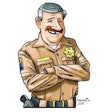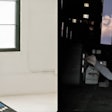"God grants liberty to those who love it and are always ready to guard and defend it!"—Daniel Webster
John wayne was the hero of my youth. He won World War II, tamed the Wild West, and generally went through life kicking butt. We hardly even remembered or cared about the name of any of the characters he played; we just went to a John Wayne Movie…period, enough said.
Then in the late 1960s, movies began to change. The anti-war movement, anti-West academia, and anti-authoritarian philosophy reshaped the image of the American hero to the anti-hero who stood against "The Man." By the time I graduated from college and became "The Man," law enforcement and almost all the warrior images of our culture had been denigrated to the point of derision by the elites.
No longer did the true hero fight for the American way; he or she exposed the evil "Military-Industrial Complex." No longer did the hero put on a uniform and fight crime. In fact, in most movies of the 1970s, the uniformed police officer became the symbol of oppression. I can remember driving proudly by my Alma Mater, The People's University of Arizona, on my way to my beat as a rookie and having former classmates oinking loudly at the faceless oppressor of the people driving by on his way to suppress somebody's rights somewhere.
Since I had minored in sociology to keep my grade point up, I decided to study the social phenomena leading to the loss of the heroic image. I have never found the answers to all my questions as to why free societies entertain the very beliefs that eventually will destroy their essential freedoms, but if you study history you find democracies tend to do this. That's why we were founded as a republic, not a democracy.
But every once in a while, the American people get a reminder of what's at stake in the world. For this generation, it was the 9/11 attacks. Since that day, there's been a real rebirth of the traditional view of the hero in American popular culture. The epitome of this new American hero is Jack Bauer on the hit TV show "24." This fellow kills bad guys without remorse, laments the loss of his heroic friends, and generally foils plots to destroy us.
You have to suspend disbelief while watching "24." Nobody could survive a single hour of Jack Bauer's adventures, much less a full 24-hour day of them. But the show is damn fun entertainment and one hell of an interesting morality play. On "24," good is good, bad is bad. There is no relativism, no anti-hero, no anti-establishment, no "we are the cause of our own enemies" malarkey. This is good old-fashioned Western-style justice being meted out by this generation's stoic warrior.
Ultimately, I believe it's important that our popular culture promote the image of the American warrior as a hero. Our fate as a free people depends on heroes: the warriors, soldiers, sailors, Marines, airmen, and cops like you. The challenge of today is to keep faith in our mission of freedom and not surrender to the coming storm of animosity toward the heroes who serve and protect.
John Wayne is long dead and whatever happens to Jack Bauer, "24" is just a television show. In the real world today, in Afghanistan, Iraq, and here in America, warriors pick up their weapons and go on a mission. Before you go on yours, take a moment to look in the mirror and see a real hero.













